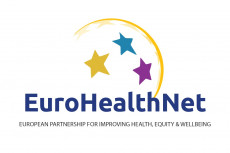
Firstly, working with other sectors is fundamental to deal with the myriad of mitigation measures in the best possible ways. Secondly, investing in the social side of crisis preparedness is as important as biomedical preparedness. And thirdly, strengthening health promotion needs to finally get off the ground, as many of its components, notably community action, personal skills development, supporting environments and reorienting health services are more needed as ever. Action can be taken, as exemplified by the many articles of this edition of the online EuroHealthNet Magazine.
Health and other inequalities were rising even before COVID-19. We can find evidence of this from the Marmot review in England, and growing social unrest such as the yellow vests movements in France. People have been left behind and this pandemic will have made their situation worse. We need a dedicated approach to address the health and wellbeing of all people in Europe. This includes working more closely with the social sector on poverty, unemployment, addressing inequalities in education, in environment etc. Working in the health silo is no longer feasible. We can no longer ignore action on the so called ‘SEEDs’ (social, economic, environmental determinants) of health.
The scale of investments needed is huge. We have seen a large mobilisation for funds towards crisis preparedness. This has mainly been to help equip health professionals and hospitals, and increase medical capacity following a bio-medical approach. However we also need to finance preparedness through a psycho-social approach. Some of the articles in this magazine demonstrate how investing in resilience, in mental health, social support can be done. I am also proud to say that EuroHealthNet recently launched an e-guide on financing these upstream approaches to health. We did this in the context of the WHO Coalition of Partners and the EU Programme for Employment and Social Innovation (EaSI). It is an underdeveloped area and much more work is needed to advance financing prevention and promotion as well as social investment.
The COVID-19 pandemic accelerated work in a relatively new area, namely on behavioural sciences and insights. It is an important approach, including studies to find out whether people comply with the behavioural rules to prevent the virus from spreading. Behaviour change has since long been at the heart of health promotion. We learnt that for many people, behaving in healthy ways or making a healthy choice is a luxury. Many groups have no choice. We need to create opportunities and enhance the capability of people to improve health, while addressing the commercial determinants of health. This is the time where we should scale up health promotion as an urgent and vital approach to address COVID-19 and other crisis in the near future. The health promotors under our readership should feel empowered to sit at the various decision-making tables at European, national, regional as well as local levels providing behavioural insights alongside cultural, socio-economic and environmental insights.
Read more on the website.